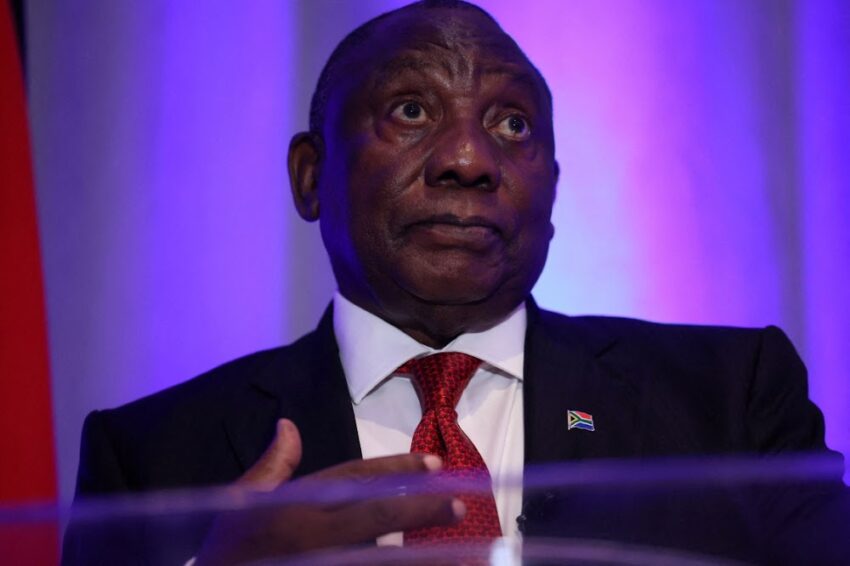President Cyril Ramaphosa’s announcement of the national dialogue has sparked predictable criticism. Some dismiss it as political theatre, others as an expensive distraction from the government’s delivery failures. After years of stagnant growth, South Africans are weary of more meetings when they need jobs and services.
But this criticism, while understandable, misses a crucial point. The national dialogue isn’t just another government initiative — it’s potentially our last best chance to break free from the low-growth trap that has strangled our economy for more than a decade.
Our economy is stuck in a vicious cycle. GDP growth remains anaemic while unemployment sits at a devastating 32%. These aren’t just statistics — they represent millions of South Africans whose livelihoods are at stake. This vulnerability poses a threat to the very foundations of our democracy.
Our challenges aren’t simply delivery problems that better government machinery can solve overnight. They’re deeply structural, rooted in historic inequalities, spatial injustice, and economic exclusion. These constraints interact with an unpredictable global environment, making every step towards prosperity a battle against systemic headwinds.
There is no textbook solution for the situation SA finds itself in today. Traditional economic remedies haven’t worked because our problems require more than technical solutions — they demand a fundamental reimagining of how we work together as a society.
The national dialogue represents something different from previous government initiatives. Its leadership core has been diversified to include non-political actors, sending a clear signal that transformation is everyone’s responsibility. It’s an attempt to harness the collective intelligence of our entire society.
Critics argue we already know what people want: jobs and service delivery. They’re right, but knowing what people want isn’t the same as understanding how to deliver it sustainably. The dialogue’s value lies in building consensus around solutions that can be implemented.
A common platform for co-operation can yield results that isolated efforts cannot achieve. When citizens actively participate in shaping solutions, they become invested in ensuring those solutions are effective. This ownership is precisely what the national development plan (NDP) lacked and why its recommendations gathered dust while being constantly referenced but never truly implemented.
The dialogue process, unfolding from local consultations through sectoral engagements to provincial and national gatherings, creates multiple opportunities for meaningful participation. Unlike top-down policy-making, this approach ensures that solutions emerge from the ground up, making them more likely to succeed.
For the national dialogue to achieve what the NDP could not, it must focus on areas where collective action can make a measurable difference. I propose seven critical areas that deserve central attention:
Scale up financing for those outside the mainstream economy. Rural economic revival requires innovative approaches and financial products that reach the many, not just the few. This means mobilising diverse funding sources and developing new mechanisms to support small enterprises and community initiatives.
Innovate financing itself. Financial resources must be paired with comprehensive technical expertise and improved delivery systems. Our collective future depends on continuously improving how we allocate and use resources.
Accelerate technological adoption. The digital divide goes beyond access to smartphones; it must ensure that technology improves access to education, finance, markets, and public services. The dialogue must address how we can overcome infrastructure constraints through the strategic deployment of smart technology.
Energy security is non-negotiable. We need stable, clean, and affordable energy to power development. This requires robust improvements in electricity transmission and distribution, alongside diversified energy sources that reduce our dependence on unreliable systems.
Job creation is our litmus test for policy effectiveness. Any policy that doesn’t contribute to reducing unemployment should be questioned. Jobs must drive our policies, strengthen domestic demand, and support supply chain diversification and innovation.
Enabling infrastructure for effective implementation. This means building systems that support trade, create high-integrity domestic markets, and facilitate economic activity at every level.
Champion effective public management systems. Better data collection, stronger co-ordination between stakeholders, and improved accountability mechanisms are essential for sectors to thrive.
The national dialogue will only succeed if it results in a new social contract owned by all South Africans. It must create powerful social partners who become designers of the future, not passive recipients of government programmes. The agenda should draw from the best of our founding documents — the Freedom Charter, the RDP, and the NDP — while addressing today’s realities.
Most importantly, the dialogue must establish institutional pillars that will drive the implementation of its outcomes. Active ownership by citizens must translate into budget allocations and measurable progress.
.
We have talented South Africans across every sector who can drive us towards a better society. The dialogue must harness this talent, create networks of co-operation, and establish the foundation for sustained prosperity as a platform to reignite the collective imagination and inject new energy into our national development efforts.
Detractors who dismiss the national dialogue as a waste of time miss its potential as a force multiplier for better economic outcomes. When people participate in designing solutions, they’re more likely to support their implementation. When diverse voices contribute to policy-making, the results are more comprehensive and sustainable.
The dialogue won’t solve all our problems overnight, but it can establish the collaborative framework we need to tackle them systematically. After a decade of stagnation, we owe it to ourselves to try something different.
Our future depends on our ability to work together more effectively than ever before. The national dialogue offers us that chance. Let’s seize it.
- Mqina has research interests in transformative leadership and public policy.
SowetanLIVE
